Aside from being structural support, your basement can also be a storage area or a place where you can chill and relax. But you may ask, should you insulate your basement walls, even those that are below grade? Here's what we found after some research.
Basement walls, like all other rooms in the house, should be insulated. Controlling the temperature of your basement is an important step toward making it a comfortable environment.
In the case of basements below grade, the surrounding ground acts as a natural insulator controlling the temperature of your basement. However, you'll need more basement insulation to keep the temperature warm.
Now, let's talk about what factors you should consider before insulating your basement walls, what insulation materials are best to use, and their pros and cons. We'll also tackle the benefits of insulating basement walls and if you should insulate the interior or exterior basement walls.
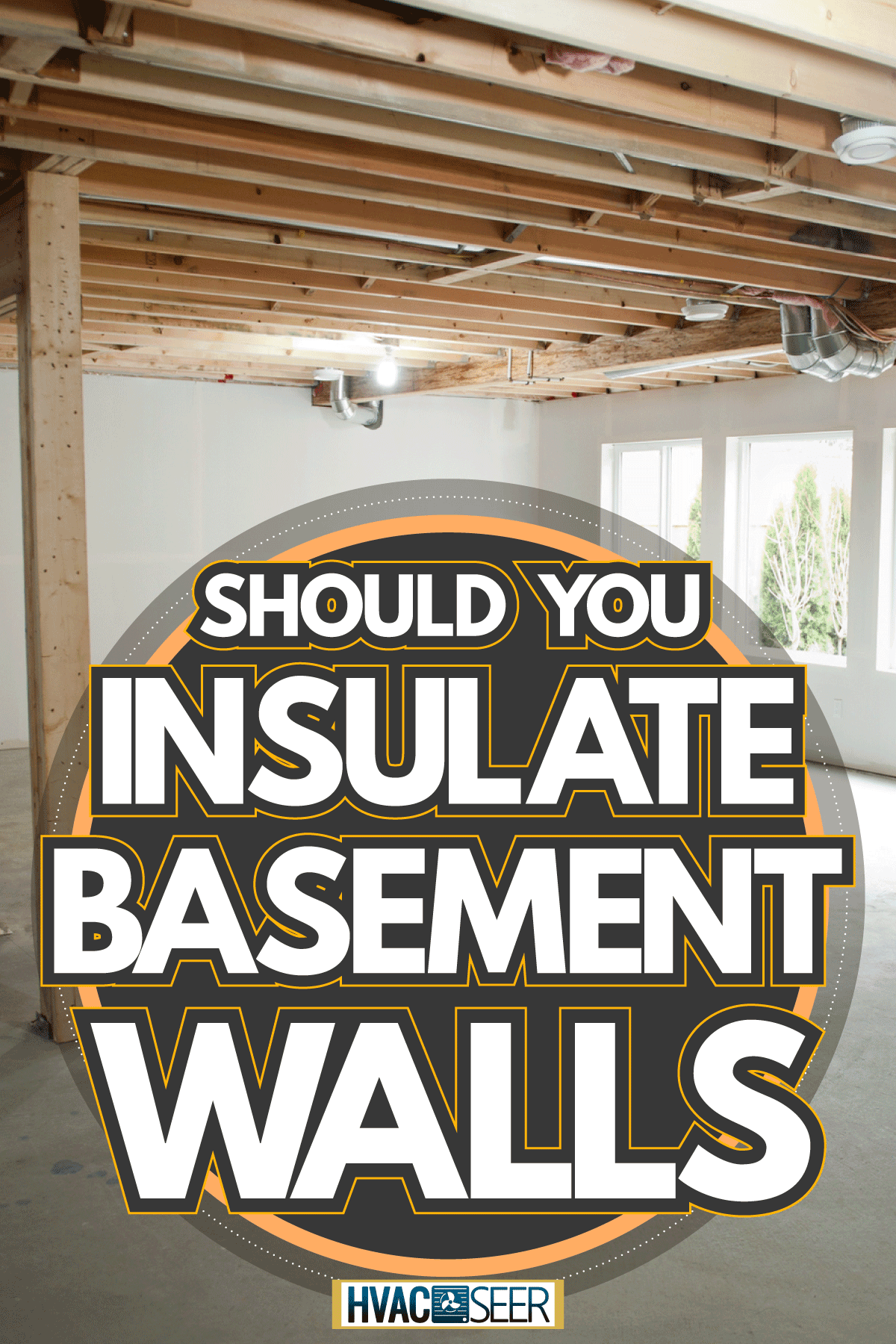
Should You Insulate Basements That Are Below Grade?
You can insulate basement walls below grade to improve thermal efficiency and protect concrete from freezing and damage, but you must be completely informed of the sort of basement walls you have.
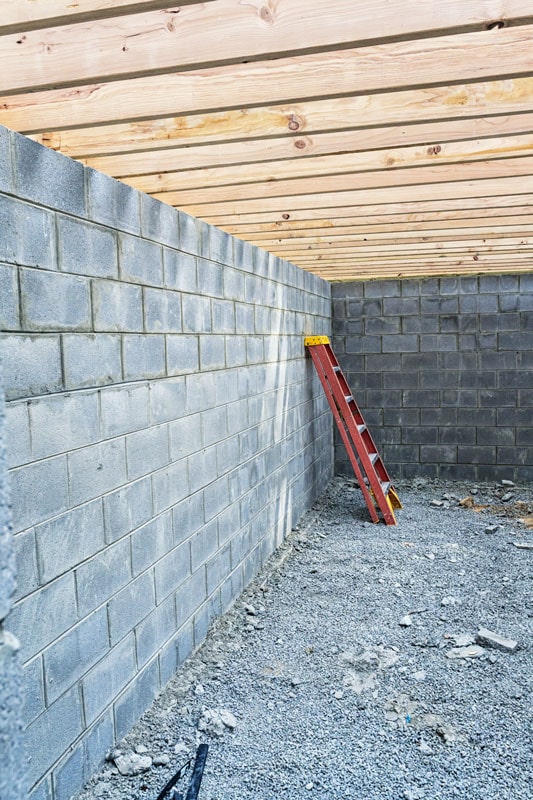
There is no reason to have your basement walls insulated below grade if you do not understand the sort of basement wall you have, your environment, and the best type of materials that will add value and benefit the environment.
What Factors To Consider Before Insulating A Basement?
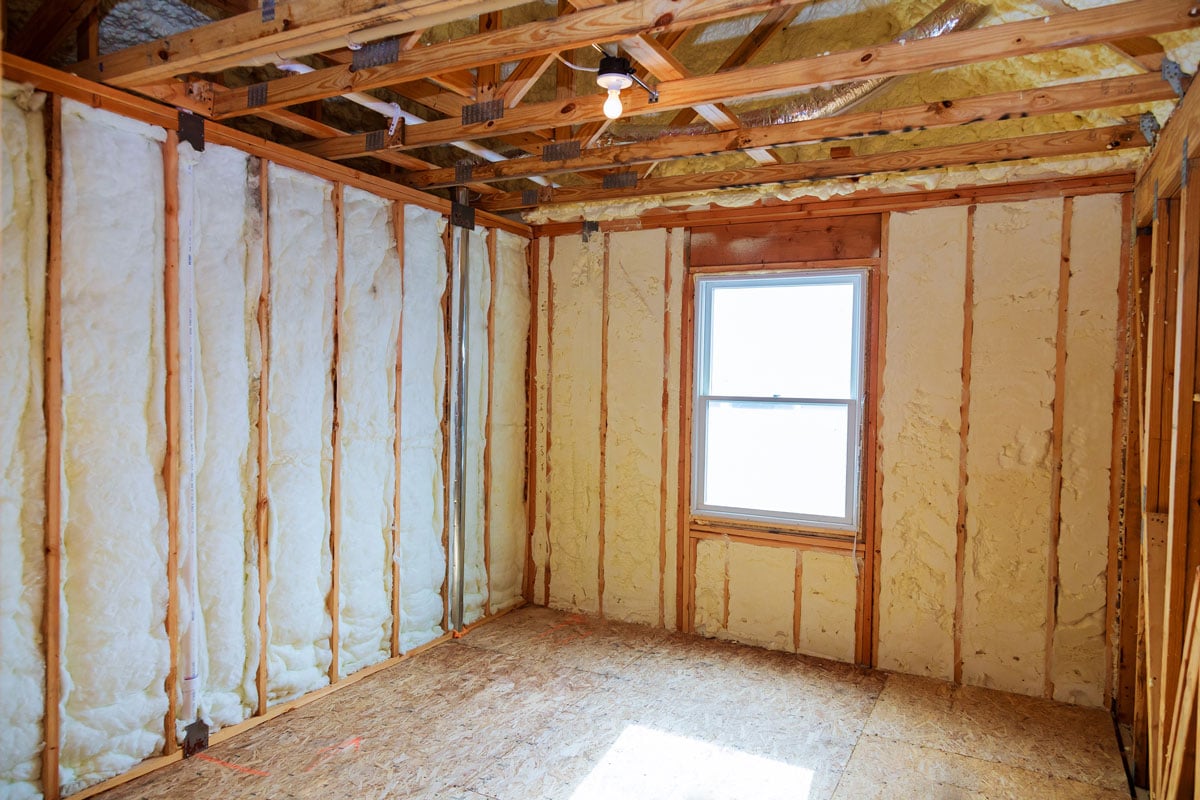
These factors might affect your decision on what type of insulation to use on your basement walls:
- Cost of insulation
- R-value
- Moisture levels
Cost of Insulation
The budget will, of course, be a consideration. The cost of insulation varies, so how much you're willing to spend will influence your final decision.
R-value
The R-value of the insulation is another thing to consider. Where you live determines the R-value you require. Remember to factor in the R-value of any existing insulation you may have.
Moisture levels
Moisture levels are another important factor to consider. Basements are highly damp, as we all know. Flooding can occur in some basements. In addition, some insulation, such as cellulose, performs poorly in damp environments. So, before you insulate your basement, make sure to consider humidity.
Best Insulation For Basement Walls [Including Pros And Cons]
There are various forms of basement wall insulation, each with its own set of challenges, strengths, and limitations, but most of them are satisfactory. Here are the best insulation for your basement walls:
- Fiberglass
- Spray foam
- Foam Board
Fiberglass Insulation
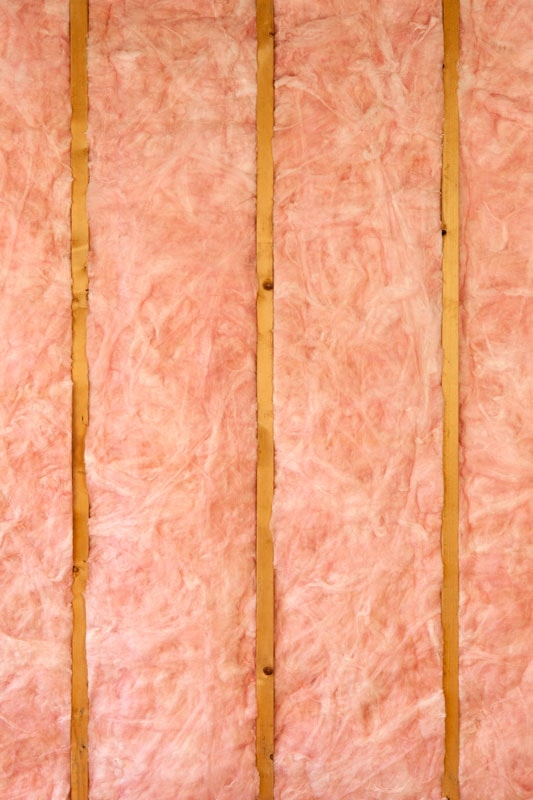
Fiberglass is the most prevalent type of insulation available. When you think about insulation, this fluffy pink substance is usually the first thing that springs to mind.
Fiberglass insulation is available in batts and is applied by rolling it between the studs and connecting it to the walls.
The materials used for this form of insulation have shown to be long-lasting over time. This sort of insulation is most commonly seen in historic houses in the walls, rims, beams, and other areas.
Pros:
- Economical
- Easy to buy
- DIY-friendly insulation
- Durable materials
Cons:
- Does not prevent warm, humid indoor air from touching the basement wood studs
- Condensation makes it easy for mold to grow
- Inhaling air from broken glass particles might be hazardous to one's health
Click here for this product on Amazon.
Spray Foam Insulation
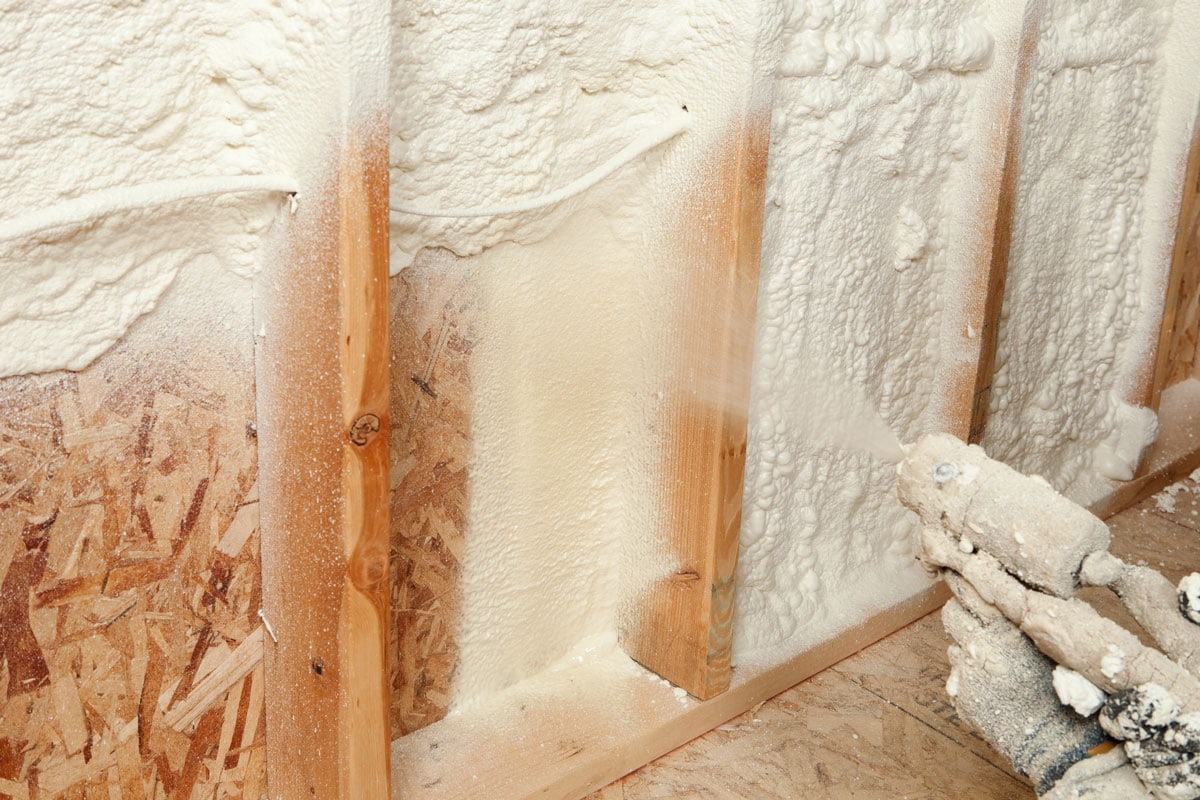
Spray foam insulation has long been thought to be the finest choice for basement walls. This is because it provides several functions and qualities to basement walls that other insulations do not, such as preventing outside air from entering the house.
For starters, spray foam has a higher R-value, which means you'll use less material. This implies your wall insulation will take up less living space. Spray foam, on the other hand, works well in damp conditions. So you won't have to worry about mold or poor performance caused by moisture.
Pros:
- Prevents noise from entering the house and maintains the tranquility
- Avoid water and mold accumulation
- Prevents moisture from entering the house
Cons:
- Leakage of air
- Problems with discomfort
- Costly
- If the materials are not properly secured, it can be dangerous
Click here for this product on Amazon.
Foam Board Insulation
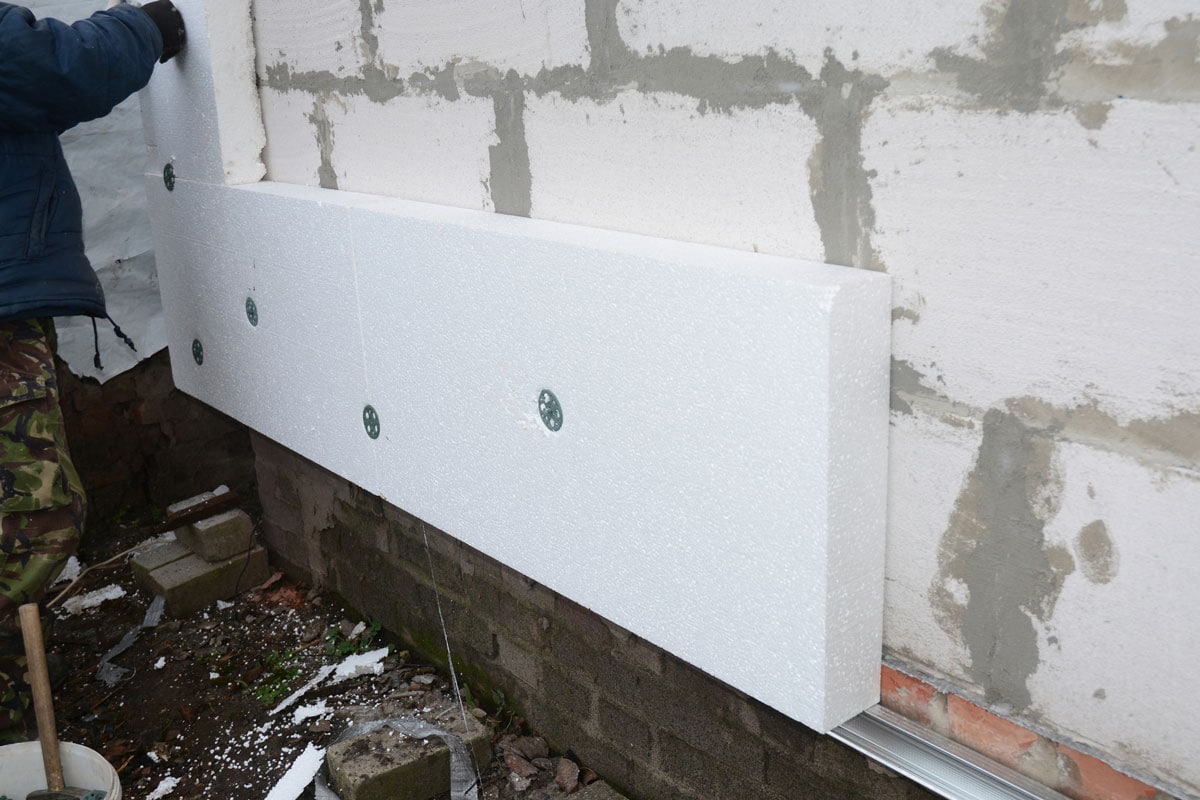
Another popular option for basement insulation is rigid foam board. Depending on your demands, these boards come in a variety of sizes and R-values.
Polyurethane and polystyrene are used as materials for this type of insulation. This is the ideal option for you if you desire good temperature management and structural stability in your home.
Pros:
- Maintenance and replacement are not required
- Maintains the inner air barrier
- Limits moisture build-up by resisting water flow
Cons:
- Allows air to leak if the foams are not properly secured
- When the boards and sheets are not properly secured, it does not block airflow
Click here for this product on Amazon.
What Are The Benefits Of Insulating Your Basement Walls?
When you insulate your basement walls, you enjoy these benefits:
- Energy conservation
- Reduced moisture content
- Improved indoor comfort
- Freeze protection for water pipes
- Water accumulation protection for the foundation
Energy Conservation
In harsh climates, insulating your basement walls creates a protective blanket that defends your property from temperature variations. Basement wall insulation helps regulate the temperature in your home, keeping it warmer in the winter and cooler in the summer.
Lowering the intensity of the heater or air conditioner will cut your energy expenditures.
Reduced Moisture Content
Insulating basement walls derail the growth of molds and mildew thus, preventing the risk of having health problems. When you insulate your basement walls, it reduces the condensation and prevents moisture accumulation making it hard for molds and mildew to thrive.
Improved Indoor Comfort
You may considerably improve your indoor comfort by insulating your basement walls. During the winter, the insulation is extremely good at preventing heat loss. It also works effectively to keep cold air inside during the heat.
You can avoid the temperature variations that plague homes with inadequate insulation. Indoor temperatures are more consistent throughout the home when basement walls are insulated.
Freeze Protection For Water Pipes
Water pipes in the basement tend to freeze in regions with colder climates. Freezing pipes causes damage and needs expensive repairs. This is not a problem when you adequately insulate your basement walls.
Water Accumulation Protection For the Foundation
Basement wall insulation applied to the building's exterior is excellent in protecting the structure from water on the outside. In colder locations, freeze-thaw cycles can also be harmful to the foundation.
External basement wall insulation protects the structure from moisture problems by acting as a buffer between the structure and the surrounding soil.
Interior Vs. Exterior Wall Insulation- Which Should You Choose?
To help you decide better, here are some pros and cons of interior and exterior insulation:
Interior Basement Wall Insulation
Pros:
- Interior basement wall insulation is significantly simpler and less expensive.
- Without the possibility of pest infestation, you can employ almost any form of insulation.
- Interior wall insulation keeps the space warmer than exterior insulation.
- Interior insulation is recommended if you intend to use the basement as a living space.
Cons:
- Insulating inner walls does not safeguard your foundation.
- It also reduces the usable space in your basement.
- If the drainage around your property is inadequate, the insulation may become moist, resulting in mold or mildew problems.
Exterior Basement Wall Insulation
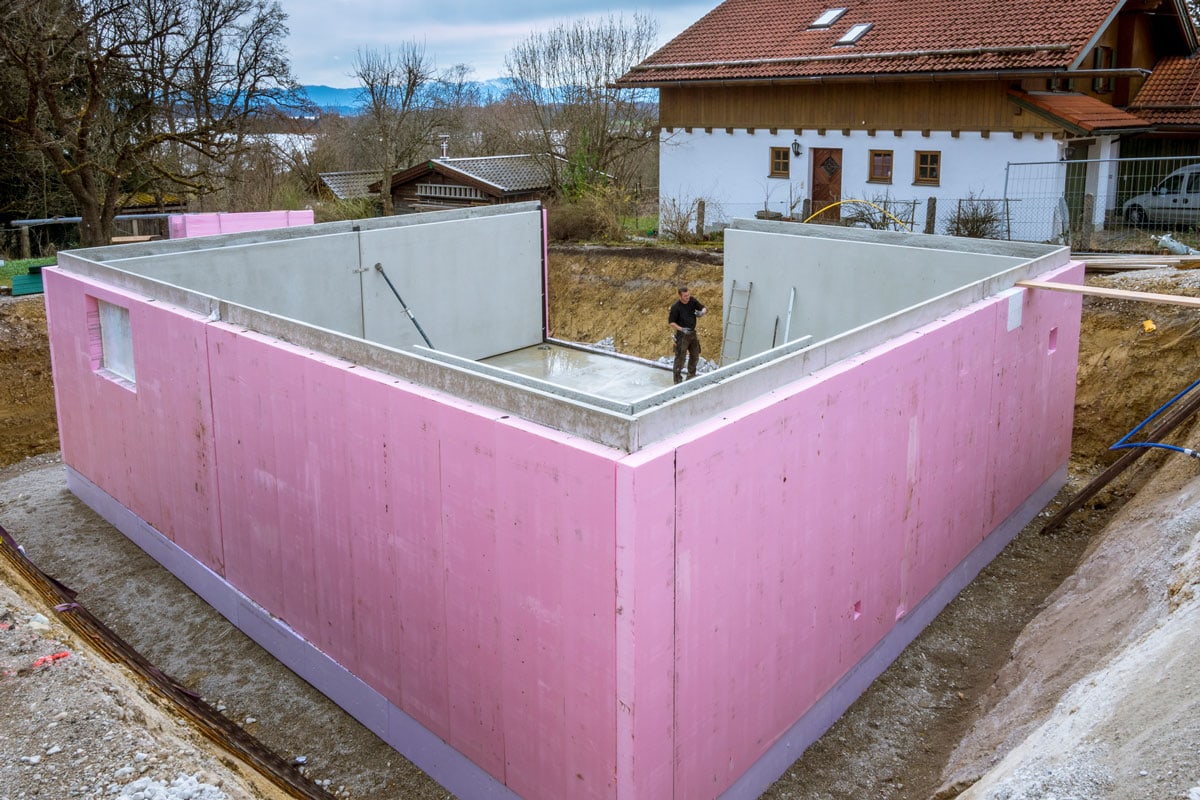
Pros:
- Insulating your foundation's outer walls keeps it warm and dry, preventing moisture, mold, and mildew.
- It shields the foundation from the detrimental effects of extremely cold temperatures.
- It protects against moisture and makes the basement warmer and more pleasant.
- Exterior insulation, unlike internal insulation, does not affect the total size of the basement.
Cons:
- Only new buildings make sense for insulating outside basement walls.
- Insulating your outside basement wall is more expensive than insulating inner walls or the ceiling.
- If you choose foam insulation that has not been treated with insect repellent, your home will be more susceptible to termite infestation.
- When insulating exterior walls, it may require a mitigation system if your soil contains radon gas.
The optimum location for your basement insulation depends on how you intend to utilize the basement and whether you are building a new house or adding insulation to an existing one. A mixed approach is sometimes the most effective.
In Conclusion
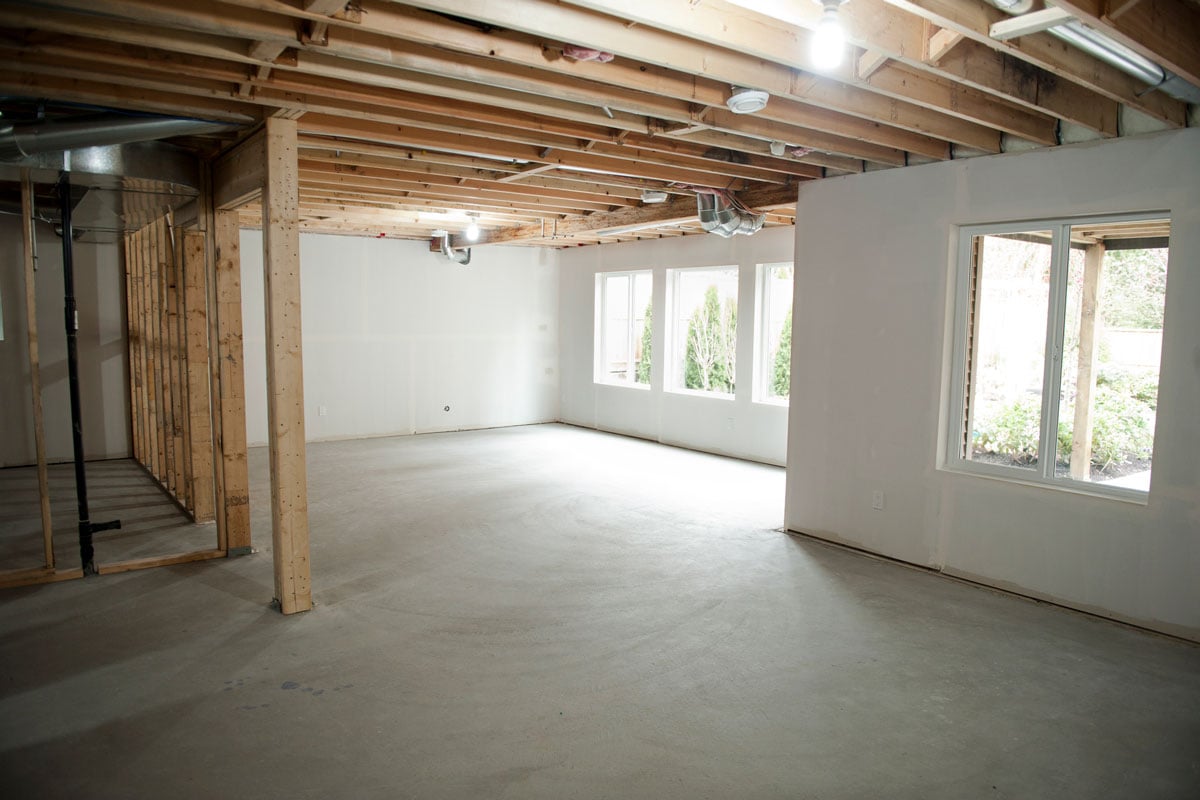
Insulating basement walls can be a good thing, especially if you want a usable space for your basement. You can also choose to insulate basement walls that are below grade for better temperature consistency inside your home.
However, one factor of successful basement wall insulation work is using the right insulation material. There are plenty of insulation materials available on the market, but the most recommended ones are spray foam, fiberglass, and foam board.
Before you go, if you want to know the best insulation to use for your basement, you can check this article: " What’s The Best Insulation For The Basement?"
And if you want to know what R-value is best for your basement walls, you can read this article: "What R-Value Insulation For Basement Walls?"



